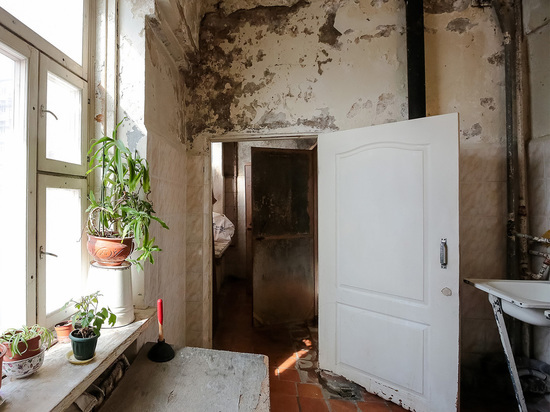For this to be always the case, it will be necessary to change the law
Providing housing to the poor as a matter of priority was decided by the Constitutional Court of the Russian Federation. After checking the constitutionality of certain provisions of the Housing Code, the court came to the conclusion that they need to be adjusted.

As it became known to MK, in order to come to this conclusion, the court considered three similar cases from three regions of Russia. The Gusevs from Nizhny Novgorod (all surnames have been changed), a father, mother and two children, one of them a disabled person, owned a room in the house, which was called emergency and was subject to demolition.
As a poor family, they were put on a waiting list for housing provided under a social contract. But they did not provide it without a queue. The courts explained this by the fact that the Gusevs were the owners of the room, and the owners, unlike tenants, do not have the right to extraordinary provision of housing.
They could qualify for resettlement only if their home was included in the regional targeted program for relocation from dilapidated housing or if the local authorities decided to take their housing away from them. Neither one nor the other was done, so the Gusevs were left with nothing.
The house of the Sychev family from the city of Artem, Primorsky Territory, suffered from a fire, it was declared unfit for habitation. The family was recognized as poor and in need of housing. But in the courts, the Sychevs failed to defend their right to receive an extraordinary housing space — they were denied on the same basis as the Gusevs.
Finally, in the Kemerovo region, the house of citizen Sabirov was declared unfit for habitation, and he was put on the general waiting list for those in need of housing. And after 1.5 years, this emergency house burned down. But the courts refused to grant him housing out of turn. They argued that the applicant himself bears the burden of maintenance, the risk of death and damage to his house. Well, the decision to withdraw this house together with the land plot for municipal needs, as in the two previous cases, was not made.
After going through all instances, the Constitutional Court became the last hope for citizens. The plaintiffs applied there with a request to check the articles of the Housing Code for compliance with the Constitution because of the uncertainty in which they found themselves in a difficult situation. In particular, the norms according to which only those who occupied housing on the basis of a social tenancy agreement are provided with housing out of turn.
In addition, they objected to the fact that the right to an extraordinary new housing depends on whether the local authorities decided to withdraw the land on which the old house was located into municipal ownership, or whether the house was included in the resettlement program citizens from dilapidated housing.
The court came to the conclusion that the existing norms of the code do not allow plaintiffs to be sufficiently confident in the realization of their right to housing. Therefore, they contradict the principles of equality, justice and proportionality of restrictions on rights and freedoms guaranteed by the Basic Law, constitutional guarantees of the dignity of the individual. The legislator must correct them, and the authorities of the regions in which the plaintiffs live must provide them with housing without a queue.


